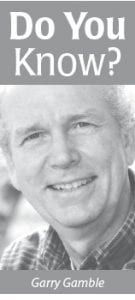The proper function of the media in a modern democracy
In 1943 the world was consumed with Germany’s aggression; Joseph Goebbel, the Führer’s propaganda machine, rolled in, in advance of German tanks and troops. Opposition publications, hoping to combat the flood of “opinion management,” began cropping up in response.
Two other events, occurring in 1943, could be considered germane to the war: namely, Sidney Kingsley’s play “Patriots,” which premiered in NYC, winning the New York Drama Critics Circle Award for Best Play; and the formation of the Hutchins Commission, in response to Henry Luce’s (publisher of Time and Life magazines) request of Robert Hutchins (president of the University of Chicago) to recruit a commission to inquire into the proper function of the media in a modern democracy.
Kingsley’s “Patriots” Premieres
Mr. Kingsley wrote his play while in service during World War II. Kingsley said he asked himself, “What is this democracy we are fighting for? Just what did these fellows—our original patriots—have in mind?” His answer, embodied in the character of Jefferson, is a confident faith in the common folk to govern themselves, to survive without guidance from a privileged aristocracy.
The aristocratic side is represented by Hamilton (here he is again) who, with his friends, talk of creating a monarchy, and how the “time is ripening for us to have a real king.”
The play has Jefferson telling Hamilton, “You have never properly estimated the character of the American people.”
The Hutchins Commission Forms
The Hutchins Commission (whose official name was the Commission on Freedom of the Press) was established as a response to criticism from the public and government over media ownership.
After deliberating for four years, the Commission came to this conclusion in 1947: the press has a moral obligation to consider the overall needs of society when making journalistic decisions; to provide citizens with the information they need to govern themselves.
“A free society needs from journalists a truthful, comprehensive and intelligent account of the day’s events in a context which gives them meaning.”
Authors Bill Kovach (former Washington bureau chief of The New York Times, and former editor of the Atlanta Journal-Constitution) and Tom Rosenstiel (executive director of the American Press Institute and founder and director—for 16 years—of the Project for Excellence in Journalism, a research organization that studies the news media and is part of the Pew Research Center in Washington, D.C.) proposed the following in their book, “The Elements of Journalism: What News-people Should Know and the Public Should Expect” (Crown Publishers, 2007).
“Journalism’s first obligation is to the truth. Its first loyalty is to citizens. Its essence is a discipline of verification. Its practitioners must maintain an independence from those they cover. It must serve as an independent monitor of power. It must provide a forum for public criticism and compromise. It must strive to make the significant interesting and relevant. It must keep the news comprehensive and in proportion.”
No matter what the technology, journalism should involve monitoring those in power; researching a topic so as to ask probing questions; gathering information and identifying to citizens, as much as possible, where it came from; examining critical documents, and verifying what sources reveal.
As Jefferson penned to his friend, political philosopher Thomas Cooper, “As men become better informed, their rulers must respect them the more.”
Former Cook County Commissioner Garry Gamble is writing a column about the various ways government works. This submission is the second of a two-part series on the why and the how. Next week begins a five-part series on Comparing Minnesota’s Price of Local Government



Loading Comments